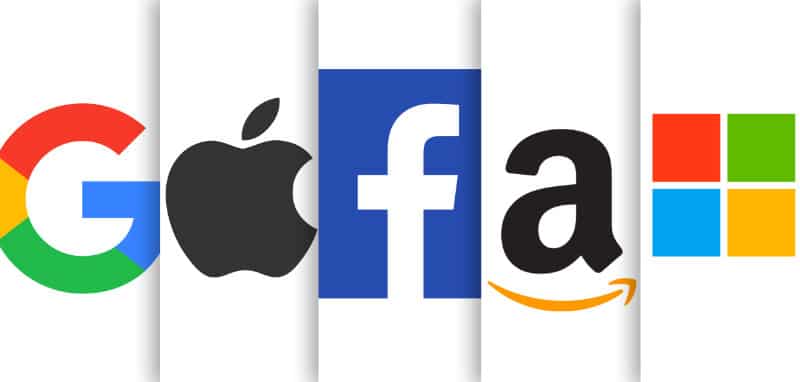CyberGhost vs NordVPN, which is better?
VPNs are no longer the very specialized services they were in the 2000s. They have indeed become more democratized in recent years and many commercial brands are on the front of the stage to praise their solution. Hardly a week goes by without an advertisement popping up on the Web extolling the merits of a VPN solution and we even see it now on television. Influencers are not left out, but we all know that they don’t really know what they are talking about when they recommend such or such software. For us who test them all, it’s a little different…
Contents
Encrypted and shielded traffic with your VPN
A VPN, or Vitual Private Network, is an invaluable barrier at a time when most sites seek to collect their visitors’ data to resell them around the world or use them for targeted advertising. To guard against this practice, the use of a VPN is then obvious since it allows both to secure and anonymize an Internet connection, both via the home box and from an access point. public or a 4G or 5G link. A VPN acts as an intermediary between a device and Internet sites or services anywhere in the world. It also takes care of changing your IP address. So rather than connecting directly to sites, a device (computer, smartphone or tablet) using a VPN goes through a server acting as a relay. It’s not a requirement, but in today’s business models, everything in transit between device and server is encrypted so it can’t be intercepted by bots, hackers, intruders, HADOPI, or even your ISP.

Why use a VPN?
For anonymity
Once the VPN is active, no site or online service will be able to know where you are actually connecting from or who you are by trying to identify your IP address. As all exchanges are carried out via the VPN server, it is the IP of this server that appears in requests and downloads, which allows you to remain “hidden”. Your real IP address is never revealed and no one can know your activity on the Net, except the owner of the “relay server”. The commercial argument of practically all VPNs on the market is of course on this: they do not keep any connection logs. We will see that this is even more true with NordVPN and CyberGhost.
An encrypted internet connection
Everything that goes through goes through your VPN and the outside world is encrypted (or encrypted as our Canadian friends say). Impossible to know on which site you go, but also what you do there. All VPNs use AES 256 encryption, but when it comes to protocol, most use OpenVPN and IKEv2. Always at the forefront, NordVPN and CyberGhost also offer the new WireGuard: a newer and more efficient protocol.
Citizen of the world !
With a VPN, your true public IP address remains permanently hidden. You can assume another public IP address as you wish and pretend that you are in Tokyo, Rio, Berlin or Bordeaux with just one click. A function that provides a certain advantage in breaking geoblocks imposed by websites or web services. You can thus access content that is not normally available in your country of origin. This is, for example, the case of Netflix, which does not offer the same catalog of films and series depending on where you connect or certain foreign television channels inaccessible in France.
In addition, by virtually changing countries, you can also trick Google’s search engine since it bans illegal streaming platforms from its search results. By connecting from another country, this restriction falls and the results returned by Google.
Fuck the GAFAM
Since all the data you exchange with a website passes through a VPN server, it becomes very difficult for advertising agencies to know you, to track you, to collect and resell the data that you would be led to sow during your navigation. It is impossible to locate you to offer you good plans near you, to know if you have gone through this or that other website before, etc. Please note that this protection only applies if you do not identify yourself. As soon as you enter the slightest data to access an account you have on a site or service (Gmail, Amazon, etc.) your anonymity vanishes.

What are the criteria for choosing a VPN?
1 > Pay attention to the speed of your VPN!
You know it: to ensure confidentiality and security, all exchanges between your device and the VPN publisher’s relay server are encrypted. A process that may require processing time. It is therefore impossible to take full advantage of the maximum speeds allowed by your Internet connection. So don’t be surprised by a loss of speed as soon as the VPN is activated. Note that NordVPN and CyberGhost indicate in the interface of their connection tool the real-time utilization rate of their servers (the load). So you can choose a server that registers less traffic. Connecting to a server in Sri Lanka will not help improve your speeds, which is why VPNs always offer the fastest server available, usually in France.
2 > How do VPN servers work?
To work, a VPN relies on relay servers spread all over the world. These are what act as the gateway between your machine and the web site or service you are trying to reach. And the more servers the publisher has, the greater the chances of enjoying smooth traffic. Otherwise, there is a risk of a traffic jam and a weak connection. NordVPN and CyberGhost also provide specialized servers for streaming or Torrent downloading. Advantage to CyberGhost here since the latter offers servers for this or that channel.
3 > How many devices at the same time on your VPN?
You probably don’t just use your computer to connect to the Internet. Also, VPN publishers offer protection in their subscription for several devices: Android or iOS smartphones, tablets, PCs, Macs and even routers or connected TVs. The amount of devices that can be used with a single account can vary from five to an unlimited number. Small advantage for those who offer a router module: once it is equipped, all devices that connect to it benefit from the VPN. This is of course the case with NordVPN and CyberGhost. If you do not want to use the VPN on your router, know that the first offers up to 6 devices simultaneously and the second offers 7.
4 > What are the prices of Cyberghost and NordVPN?
- All VPN services adopt the principle of subscription over one, two or three years. The principle is the same each time: you are not committed, but you pay all of what is due at once at the beginning (this avoids accidental renewals)
- NordVPN’s most advantageous offer to take the service for 2 years which makes you pay 94.23 €. It therefore amounts to €3.49/month. You have 30 days to think and right now you have 3 months free.
- At CyberGhost, the usual 3-year offer costs €82.29 all at once, but you get 3 months free and therefore 39 months of protection. The withdrawal period is 45 days. It amounts to paying €2.11/month. good here, the advantage is very clearly on the side of CyberGhost and its little black ghost on a yellow background.
5 > VPN and data privacy?
To be completely neutral, a VPN publisher must apply a “no log” policy. In other words, it must not keep any trace of your passage stored in a connection log. The most serious publishers highlight a certification issued after an audit by an independent consulting firm. Although many claim to keep nothing, few of them can claim and present a reliable audit. This is however the case of our two champions since NordVPN can boast of having been dubbed by PricewaterhouseCoopers AG while CyberGhost has been audited by Qscert. Either way, you can be sure that these two VPNs don’t hold anything back. CyberGhost reminds him on a dedicated page.
NordVPN or CyberGhost? Who won ?
NordVPN, the best known…
NordVPN is the #1 VPN and the one people know the most about. It’s a safe bet with solid servers, good speeds, a user-friendly interface and very interesting features such as protection against DNS leaks, the Kill Switch to cut the network in the event of a relay failure, dedicated servers for P2P exchanges or to use the Tor protocol directly. It is even possible to double the VPN (the connection will go through two different countries) or to hide from the network that you are using a VPN (obfuscated server). In short, it’s solid. However, it is a little more expensive than its competitor.
… Or CyberGhost, the outsider?
What we particularly appreciate about CyberGhost is its clear interface, whether on PC or mobile. It also offers the Kill Switch and a whitelist mode to pass programs or apps outside the VPN, but it also adds the Leak Monitor which allows you to check that your e-mail ends up in a potentially hacked database. and the Password Checker allows you to check that your passwords are strong enough. From the outset, one can select servers dedicated to web surfing or streaming. CyberGhost is also the VPN that offers the most servers (8900 machines in 91 countries), but also dedicated servers for online gaming, streaming and BitTorrent downloading. It is also the cheapest since by choosing CyberGhost you actually have a free year if we compare the two best offers (€82.29 for 3 years at CyberGhost versus €94.23 for 2 years at NordVPN). For us it is the winner of this comparison.
Also read on NordVPN:
Also read on CyberGhost:
If you are still hesitating, here is a video presentation of CyberGhost on mobile:


